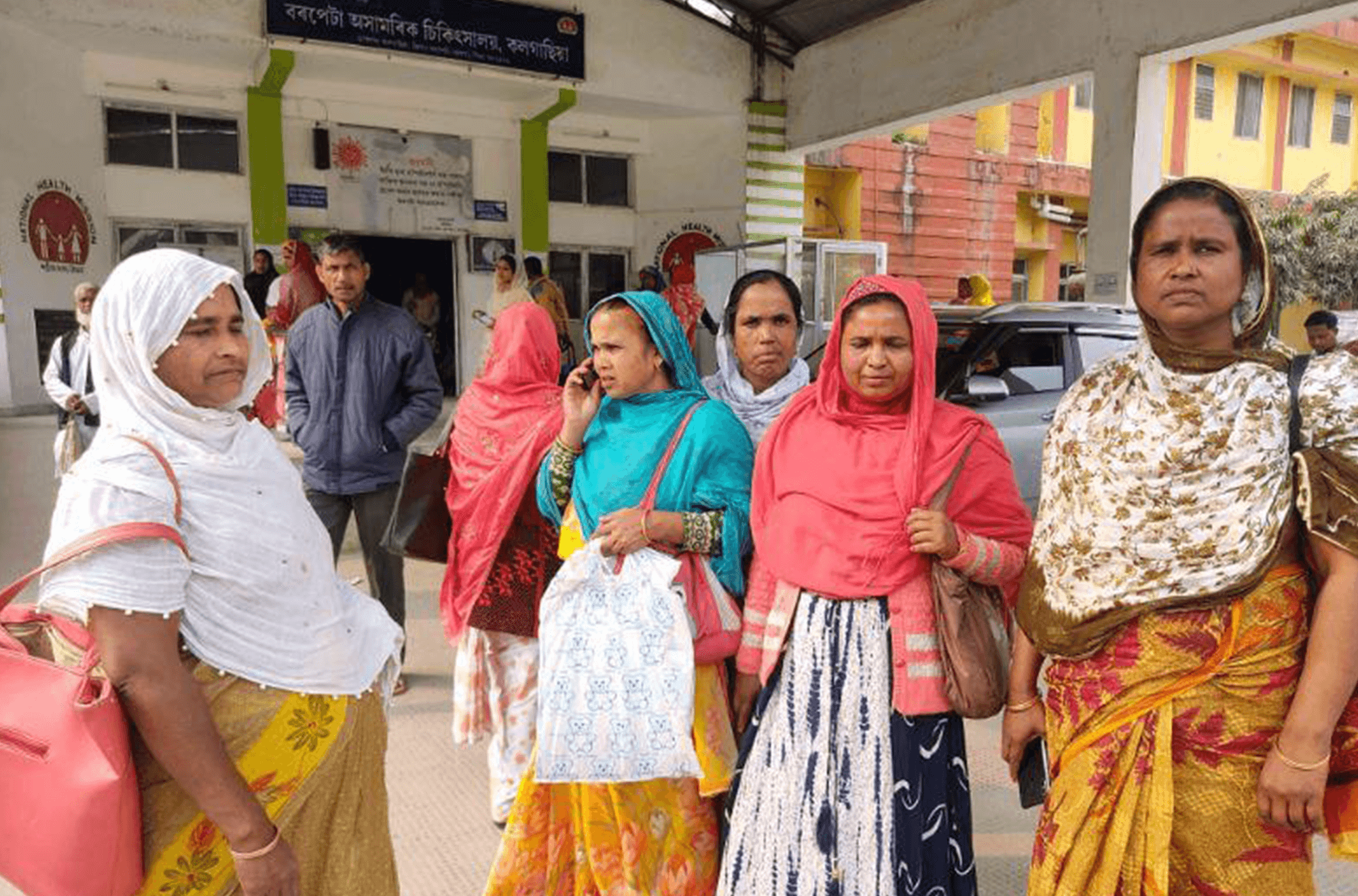
ASHAs: Barpeta Civil Hospital, Assam
As of 10 February, the Assam government had arrested over 2,700 people for violations of child marriage laws. As a consequence, fear has especially gripped pregnant teenagers in the state. With their husbands and fathers either absconding or arrested, pregnant teens are backing away from receiving maternity care and proper medical attention. In Barpeta, a district with one of highest arrest numbers in the state, pregnant girls are being locked away due to fear of the police.
The Superintendent at Barpeta Civil Hospital observed that there has been a decline in the number of women attending the hospital. “We used to have a long queue of around 50 women every day. Now, that has come down to 15-20.” A senior gynaecologist at the hospital said many teenage patients had approached him in the last couple of days seeking an abortion. He also said many teenagers are avoiding coming to the hospital at all, due to “panic and fear because of the police action”. “Many now will use unscientific means for an abortion or home delivery,” he said.
All of this has left doctors aghast. “Our objective is the same as the government, which is to reduce infant mortality and maternal mortality,” said another doctor at the hospital. “But if the teenagers don’t come to the hospital, it may have the opposite repercussions.”
The Senior Medical and Health Officer at Doboka Community Health Centre also said that there have been instances of expecting teenagers coming up to him asking to have abortions, fearing that the baby might eventually serve as some sort of evidence against them. Many hospitals and health centres have stopped reporting fresh teenage pregnancies. Apparently, many girls have resorted to home births or used abortion pills, skipping scheduled doctors’ appointments and routine check-ups.
In one incident, a 17-year-old girl in Bongaigaon district died after developing serious complications from post-partum haemorrhage, following an attempted home delivery. The police arrested five people including the girl’s father, husband and father-in-law under the Protection of Children from Sexual Offences Act and the Prohibition of Child Marriage Act.
The crackdown seems to have severely impacted the work of the ASHAs (community health workers in their villages), who play a key role in providing health support, especially to impoverished rural pregnant women. They survey villages for pregnant women and register them at the local health centre, keep a tab on their progress through pregnancy, and ensure that they go for four ante-natal check-ups. But the police crackdown has disrupted this work. People are reluctant to share information with the ASHAs, fearing that they will share it with the police. “Our field has been destroyed,” said one. “We have been facing huge issues in the villages during a survey, as nobody is cooperating with us. They are blaming us for the arrests.” Her colleagues in other villages echoed her. “When we go to the resident’s house, they run away,” another said.
A Kalgachia-based pharmacist said “about two-three people” had been coming to his shop every day since the crackdown asking for abortion pills. “We are getting repeated calls seeking advice on how to abort,” said the pharmacist. There are also claims that some doctors are charging Rs 4,000 to abort pregnancies that cannot be terminated with pills – often without any documentation.
SOURCES: Deccan Herald, 12 February 2023 ; Scroll, by Rokibuz Zaman, 11 February 2023 + PHOTO by Rokibuz Zaman



